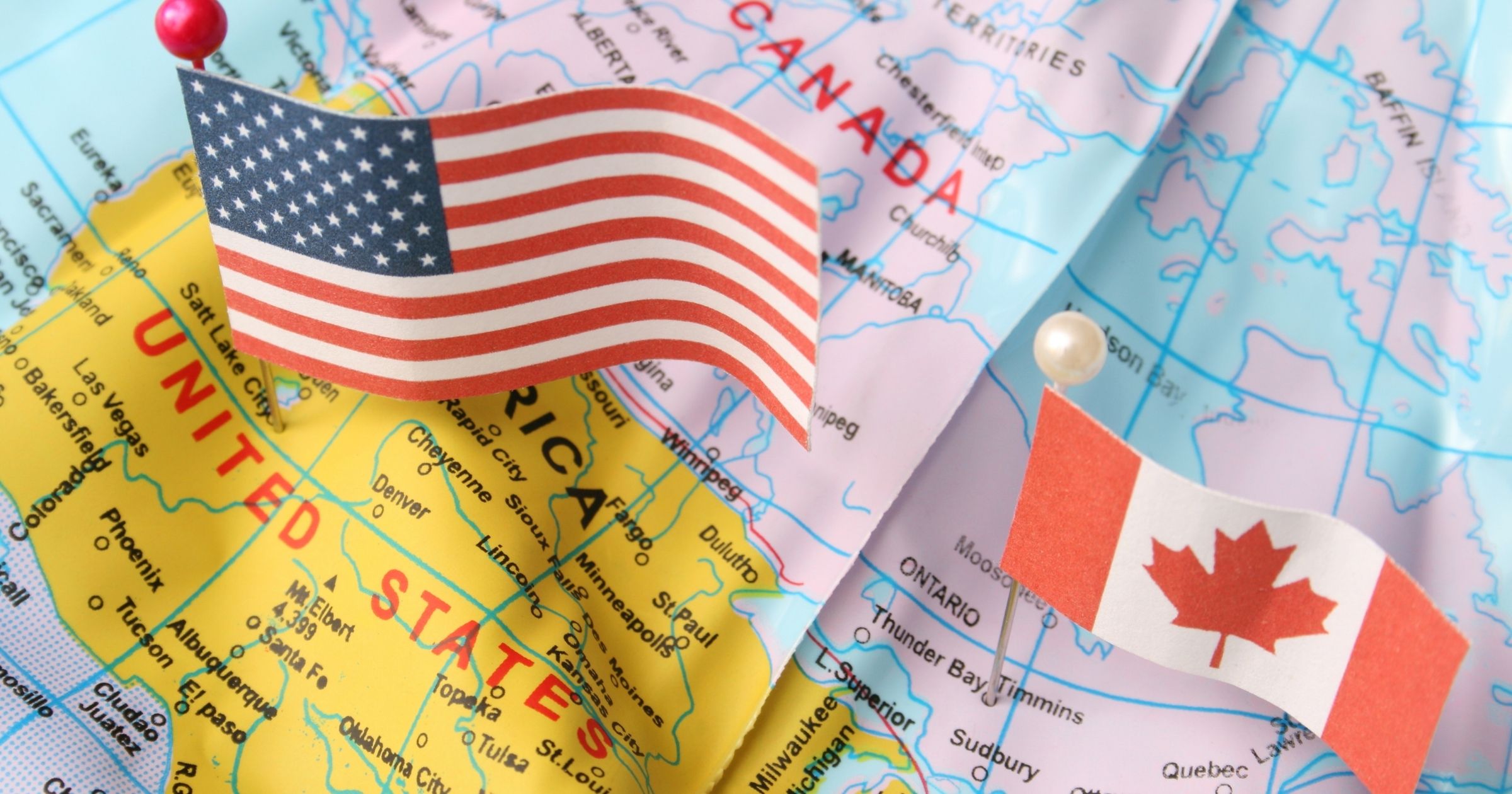
North American Tourism at a Crossroads: Beyond Borders Tourism Coalition Urges Action as New Tariffs and Political Instability Stall Recovery for Tourism Industry
The Beyond Borders Tourism Coalition, a unified alliance of U.S. and Canadian tourism, trade, and association stakeholders, is calling for urgent policy clarity and coordinated action in the face of escalating tariffs and the recent funding cuts of critical NGOs and infrastructure support, while historic uncertainty grips cross-border travel.
The combined effects of tariffs, funding cuts, new fees to enter the U.S., and uncertainty at border crossings are undermining recovery, deterring new investment, and reducing opportunities for cultural and economic exchange.
"Rising tariffs and economic headwinds are cutting into consumer purchasing power, reducing demand for U.S. vacations, and forcing our members to reconsider future investment and hiring. The economic impact has been immediate and measurable—USTOA members are already reporting millions of dollars in lost bookings and revenue, with some projecting a decline of up to 11% in international visitor spending for 2025 alone," said Terry Dale, President, United States Tour Operators Association. "These losses translate to cutbacks in operations, workforce reductions, and missed opportunities for communities nationwide. The ripple effects across our sector are deeply concerning, underscoring the urgent need for clear, stable policies that support a thriving U.S. travel economy."
The Beyond Borders Tourism Coalition identified earlier this year that proactive, collaborative approaches are needed to reverse these trends and restore confidence in an industry that in the past contributed approximately $2.5 trillion USD to North America's GDP, making up 9% of total economic output. In the U.S., tourism supports close to 20 million jobs while in Canada 1.9 million jobs are attributed to the visitor economy.
"Thousands of jobs are on the line as these damaging tariffs disrupt the flow of tourists, drive up costs, and threaten our members' livelihoods. The economic toll is immediate: Canadian tour operators are facing millions of dollars in lost bookings and mounting operational costs, with some businesses reporting declines of over 70% in cross-border travel activity for 2025," said Jean Hébert, Executive Director, Canadian Association of Tour Operators (CATO). "If decisive action isn't taken, our communities will feel an economic impact that could take years to reverse as tourism-dependent businesses struggle to survive and local economies miss out on vital revenue."
The negative impacts on the visitor economy on both sides of the border continue through what is traditionally tourism's busiest season across North America.
- Plummeting Travel Bookings: Foreign tourist spending in the U.S. is forecasted to drop by 11% in 2025, an $18 billion loss. Advanced air bookings between Canada and the U.S. have fallen by over 70% year-over-year.
- Hospitality Warning Signs: Major hotel chains and urban tourism boards are bracing for sharp declines (as much as 6-7% in some cities) in international visitation owing to economic and policy headwinds, with companies adjusting revenue forecasts downward (that according to Bloomberg and Hospitality Insights).
- Consumer Impacts: Tariffs are driving the cost of goods higher on both sides of the border, eroding discretionary travel budgets and undermining consumer and business confidence in travel planning.
- Regional & Indigenous Impact: Community initiatives and Indigenous-led tourism are being threatened by reduced travel, job cuts, and cultural setbacks.
"The ATTA's recent global survey makes it clear: political instability and uncertain government policies are being sharply felt across the adventure travel sector. Our research shows that 93% of U.S. operators and 89% of their international counterparts anticipate negative impacts for at least the next year," said the Adventure Travel Trade Association's CEO Shannon Stowell. "While our industry is holding steady for now, the greatest challenge is uncertainty—especially around finances, safety, and the potential for sudden policy changes that disrupt travel plans and business confidence. As an industry, we must continue to adapt, but lasting resilience will require stronger support, greater policy clarity, and a renewed commitment to cross-border collaboration."
All members of the Beyond Borders Tourism Coalition urge policymakers in the U.S. and Canada to prioritize negotiation, transparency, and cross-border cooperation over protectionist measures. Divisive trade and fiscal policies need to be reassessed in favor of approaches that restore confidence and support the livelihoods of millions:
"Both the U.S. and Canadian tourism economies have lost millions in revenue due to drastically reduced cross-border travel. The economic impact ripples across communities—from tour companies of all sizes to main street hotels and restaurants, iconic attractions, big cities, and rural destinations—many of which depend heavily on cross-border tourism to stay afloat," said Catherine Prather, President of the National Tour Association. "Beyond advocating for stability, proper funding, and common-sense policy, we urgently need to restore global confidence that the U.S. remains a safe, welcoming, and inclusive destination. Without that commitment, the long-term viability of our industry and the communities we support is at serious risk."
"Motorcoach tourism is the backbone of North American travel, generating $90 billion annually in group travel and connecting millions to vibrant cities, historic towns, and natural wonders," said Fred Ferguson, President and CEO of the American Bus Association. "Our industry supports 500,000 jobs and countless small businesses, providing accessible and sustainable travel options for all. As a vital economic driver, motorcoach tourism fuels local economies and enriches communities. It's essential that policies continue to promote both vibrant international and domestic travel—ensuring long-term growth and opportunity for our industry and the travelers we serve."
"Student and youth travel is a cornerstone of North America's visitor economy, generating billions in economic activity, supporting thousands of jobs, and providing life-changing educational and cultural experiences for young people each year. These journeys foster global understanding and inspire future leaders," said Carylann Assante, CAE, CEO of the Student and Youth Travel Association (SYTA). "Sadly, new tariffs and ongoing economic instability are making travel unaffordable for many schools and families. Rising costs, canceled programs, and greater uncertainty are cutting off opportunities just when our youth need them most. Protecting student and youth travel isn't just about economics—it's about safeguarding access to learning, exchange, and hope for the next generation."
"Indigenous tourism is a vital bridge connecting communities, cultures, and economies across Canada and the United States. This sector creates opportunities for Indigenous entrepreneurs, fosters cultural revitalization, and delivers unique experiences that attract millions of travelers every year," said Keith Henry, President and CEO of the Indigenous Tourism Association of Canada (ITAC). "But the recent wave of tariffs and mounting political instability threatens all we have built. Rising costs and uncertainty hurt Indigenous-owned businesses disproportionately, putting jobs, livelihoods, and intergenerational knowledge at risk. To protect the promise of Indigenous tourism—for our communities and for future generations—our leaders must restore stable, open, and collaborative cross-border policies that allow Indigenous tourism to thrive."
"International inbound travel is one of America's strongest economic exports and a powerful tool for global connection—yet it's being undermined by shortsighted policies, increased entry costs, and damaging rhetoric," said Lisa Simon, CEO of the International Inbound Travel Association (IITA). "Our members are seeing lower bookings for the fall and into 2026 due to avoidable barriers like visa delays, excessive fees, and policy unpredictability. This is not just bad for business—it's bad for America's global image. We call on U.S. leaders to treat inbound travel as the essential economic and diplomatic asset it is and to act urgently to restore competitiveness, clarity, and confidence in traveling to the United States."
"For Destination Original Indigenous Tourism, we've seen firsthand how recent regulations are jeopardizing opportunities on the world stage—including Indigenous inclusion in major cultural showcases. With global eyes turning to North America for events like the upcoming FIFA World Cup, this is our chance to welcome guests to our lands and lift up Indigenous musicians, artists, and creators from Canada, the U.S., and Mexico. Now, those voices risk being silenced," said Sebastien Desnoyers-Picard, President and CEO of Destination Original Indigenous Tourism (DO-IT). "This is more than a cultural loss—it's a missed economic opportunity in marketing, sales, and global reach for communities already facing barriers. The impact could be profound and far-reaching."
Courtesy of Groups Today.



